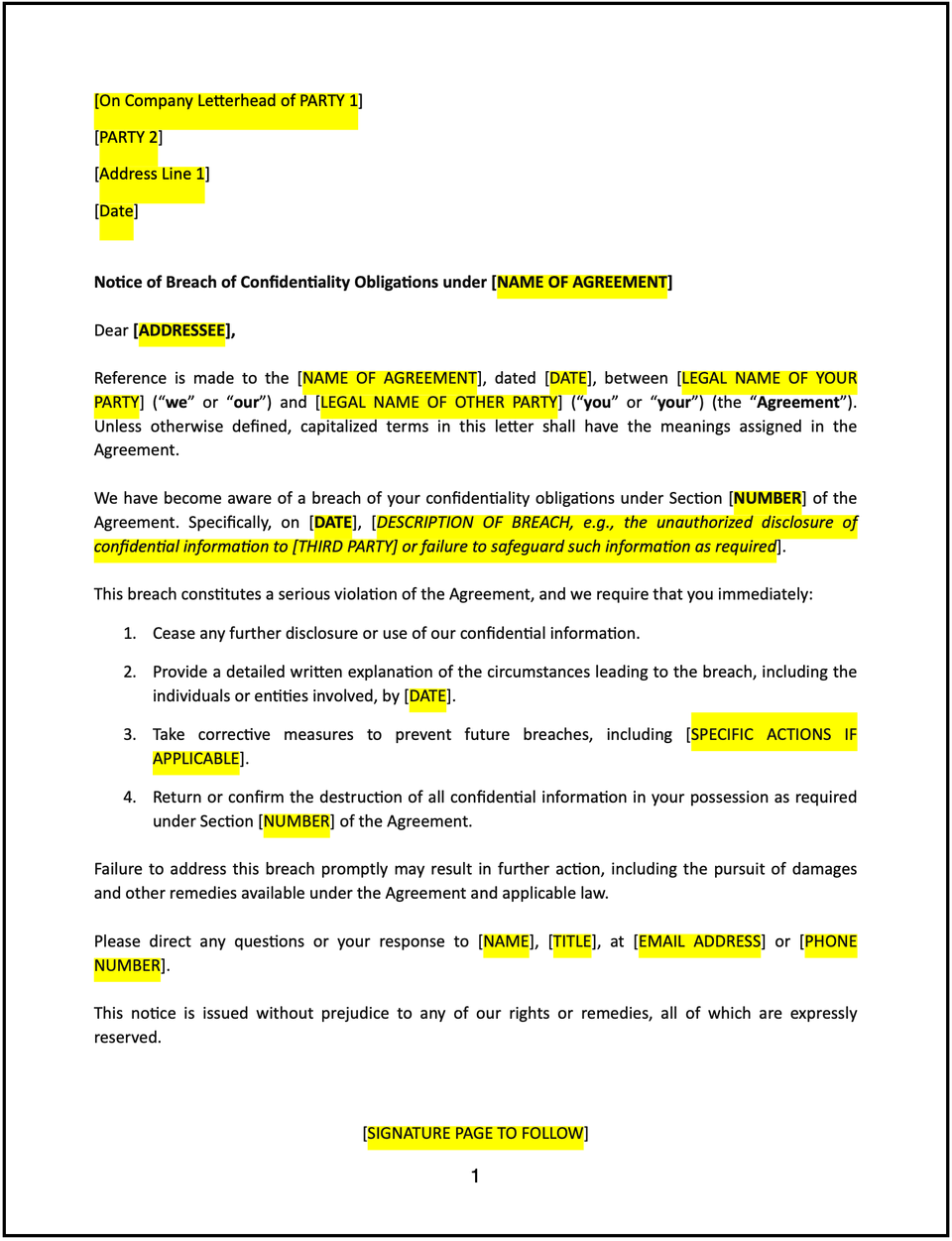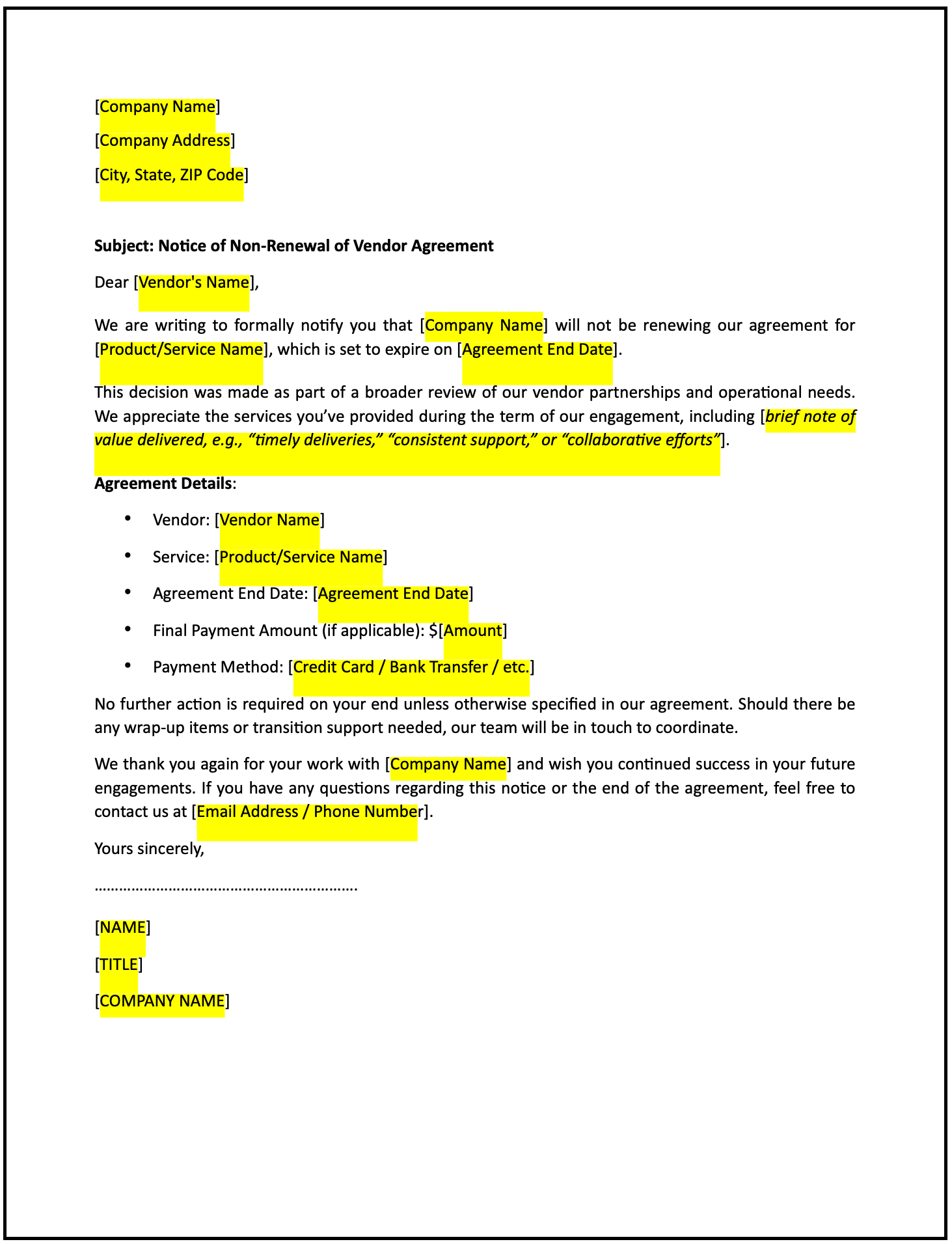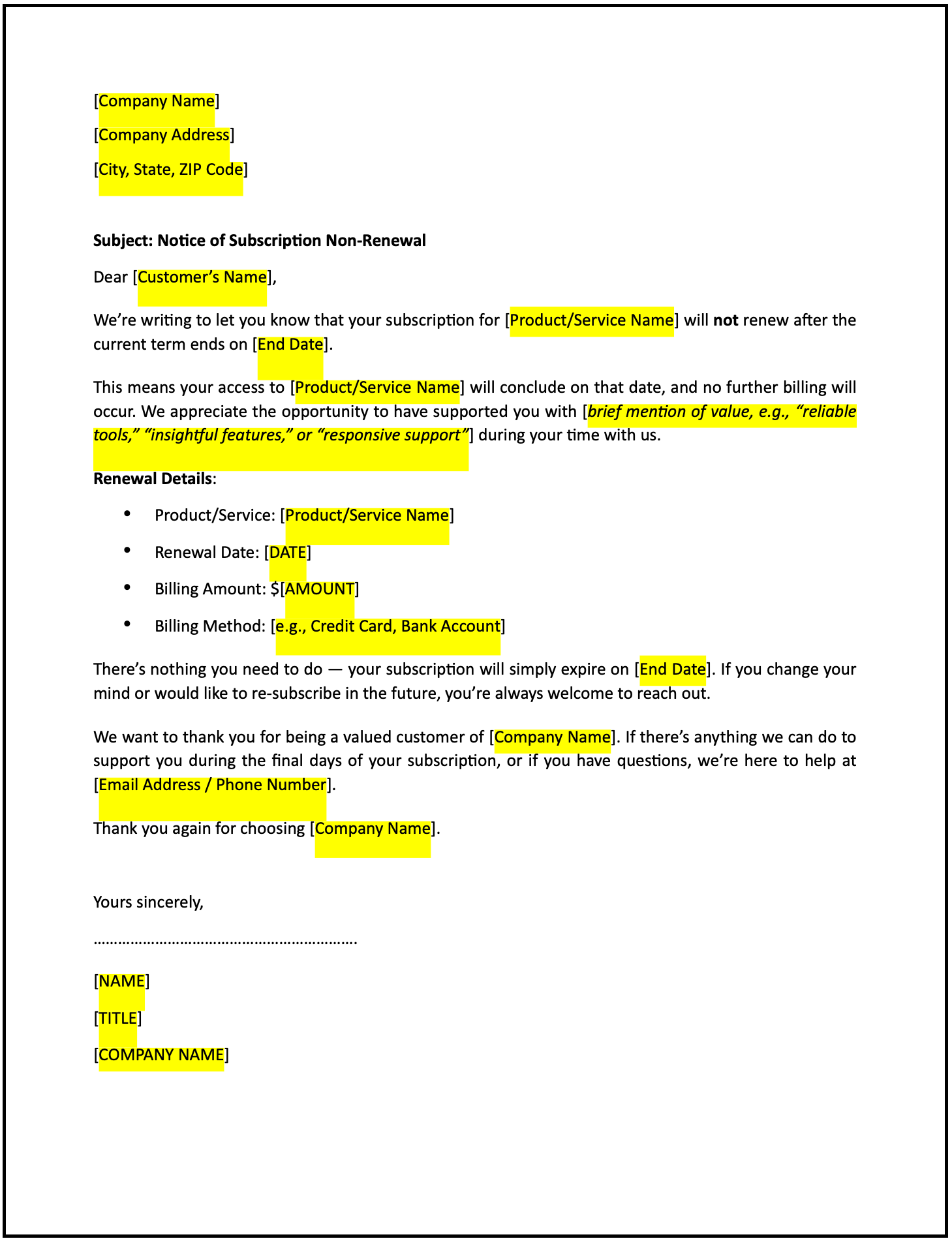Letter of notice for breach of confidentiality obligations: Free template

Letter of notice for breach of confidentiality obligations
A letter addressing a breach of confidentiality obligations is a formal way to notify the breaching party of the violation, assert your rights, and seek resolution. This letter provides a professional approach to outline the breach, emphasize its seriousness, and request corrective action.
How to use this letter of notice for breach of confidentiality obligations
- Open with context: Begin by referencing the confidentiality agreement or clause and its importance to your relationship or transaction.
- Identify the breach: Clearly outline the specific actions or omissions that constitute the breach of confidentiality.
- Provide evidence: Include supporting details or documentation demonstrating the breach.
- Assert your position: Emphasize the seriousness of the breach and its implications, referencing the confidentiality agreement or applicable laws.
- Request corrective action: Specify the actions you expect the breaching party to take, such as ceasing further disclosures, returning sensitive information, or providing assurances.
- Highlight consequences: Mention potential legal or contractual remedies if corrective action is not taken promptly.
- Maintain a professional tone: Ensure the letter is clear, respectful, and focused on resolution.
- Provide contact information: Include details for further communication or clarification if necessary.
Benefits of using a letter of notice for breach of confidentiality obligations
This letter template ensures a structured and professional way to address breaches of confidentiality while fostering resolution and protecting your interests. Here’s how it helps:
- Protects your rights: Clearly addressing the breach demonstrates your commitment to upholding confidentiality agreements.
- Encourages compliance: Outlining the issue and consequences motivates prompt corrective action.
- Reflects professionalism: A well-crafted letter reinforces your credibility and seriousness.
- Supports documentation: Creating a formal record of the breach is useful for future reference or legal proceedings.
- Strengthens relationships: Proactive communication fosters opportunities for resolution without escalation.
Tips for writing an effective letter of notice for breach of confidentiality obligations
- Be specific: Clearly reference the agreement, outline the breach, and provide supporting evidence.
- Use professional language: Maintain a respectful yet assertive tone to convey the seriousness of the matter.
- Highlight implications: Explain the potential consequences of the breach to emphasize its importance.
- Request corrective action: Specify the actions required to resolve the issue and prevent further violations.
- Keep it concise: Focus on the key points without overwhelming the recipient with unnecessary details.
Frequently asked questions (FAQs)
Q: What details should I include in this letter?
A: Include a reference to the agreement, details of the breach, supporting evidence, and requested corrective actions.
Q: Should I personalize the letter?
A: Yes, addressing the recipient directly ensures clarity and demonstrates attentiveness.
Q: Who typically receives this letter?
A: Send the letter to the individual or entity responsible for the breach of confidentiality obligations.
Q: How formal should this letter be?
A: The tone should be highly professional and assertive to ensure the seriousness of the matter is communicated.
Q: When should this letter be sent?
A: Send the letter promptly after identifying the breach to demonstrate your commitment to resolving the issue.
Q: Can this letter include a deadline for corrective action?
A: Yes, specifying a reasonable deadline encourages prompt compliance and resolution.
Q: Is acknowledgment from the recipient required?
A: While not mandatory, requesting confirmation of receipt or compliance ensures the issue is addressed effectively.
This article contains general legal information and does not contain legal advice. Cobrief is not a law firm or a substitute for an attorney or law firm. The law is complex and changes often. For legal advice, please ask a lawyer.


